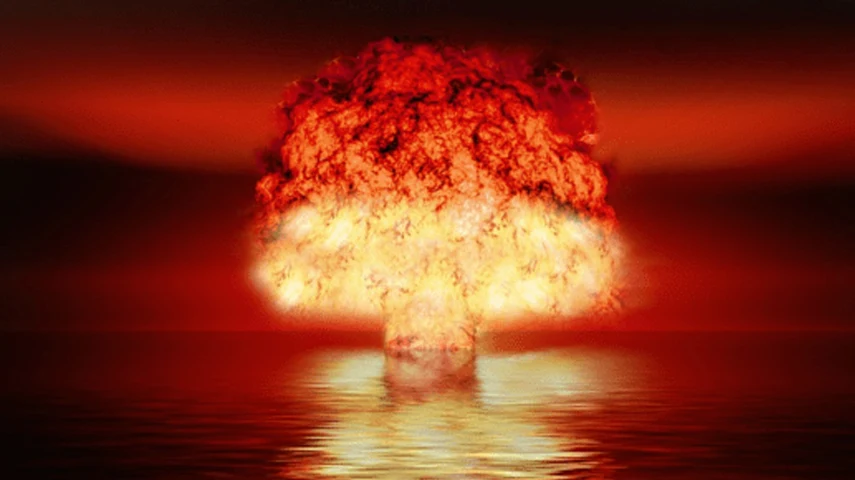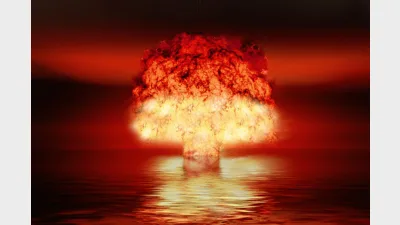Policy says no, portfolios say yes: Super’s nuclear contradiction



Nuclear weapons, the ultimate symbols of destruction, are bad, unless, of course, you’re a super fund quietly growing its portfolio off the back of them.
As global leaders call out Iran over its alleged pursuit of nuclear weapons – fuelling fresh tensions in the Middle East – Australia’s largest superannuation funds remain deeply invested in the very industry the government condemned on Monday, with billions still tied up in companies linked to nuclear arms.
Last year, a report by The Australia Institute and Quit Nukes laid bare a stark contradiction at the heart of Australia’s retirement system.
Despite the UN Treaty on the Prohibition of Nuclear Weapons (TPNW) coming into force in 2021 – placing nuclear weapons on the same moral footing as chemical weapons, landmines and cluster bombs – many Australian super funds remained heavily invested in them, with sizable sums tied up in weapons of mass destruction.
In fact, the total amount invested in nuclear weapons as at 31 December 2023 was $3.4 billion.
The report showed that only Hostplus had made a meaningful move, excluding nuclear weapons from its portfolio since December 2021, while others, like AustralianSuper, Aware Super, HESTA, and UniSuper, continued to hold hundreds of millions – some over a billion – in companies that profit from nuclear proliferation.
That included AustralianSuper’s Socially Aware option, which, ironically, still invested over $20 million in eight nuclear weapons companies as of 31 December 2023. Evidently, “socially aware” doesn’t extend to funding weapons of mass destruction.
Speaking to Super Review's sister title InvestorDaily on Monday, Alice Grundy, research manager at The Australia Institute, said fresh data – soon to be published – shows that while a couple of funds, including Hostplus and HESTA, have made progress, a majority still have a long way to go.
“I think a lot of Australians would be pretty surprised to find out that their superannuation is funding the production of nuclear weapons and that it continues to be the case even though we’re entering an increasingly dangerous world where it seems as though the possibility of nuclear confrontation is higher than before,” Grundy said.
The contradiction between nuclear weapons being branded as existential threats and moral liabilities, and super funds remaining invested in them, goes beyond simple oversight.
While funds defended their exposure to InvestorDaily last year, as either “small” or “indirect”, some still labelled nuclear weapons a grey area – despite other banned weapons like landmines being routinely screened out.
Aware Super, for instance, justified its position in October by noting Australia hasn’t ratified the TPNW, suggesting it's a government issue – not a moral one. AustralianSuper, which manages over $360 billion, said members have "diverse values" and that a range of investment options are available.
That may be true. But when global stability hangs by a thread, and nuclear fears dominate headlines, super funds’ attempts to sit on both sides of the fence look less like pragmatism and more like profit-first posturing.
InvestorDaily followed up with the funds previously identified to determine whether their exposure to nuclear weapons had changed since the last review.
In response, Aware Super confirmed it had taken decisive steps to reduce its holdings in nuclear weapons since 2023.
“Aware Super has recently expanded its existing fund-wide controversial weapons exclusion to include more weapons categories and companies that generate a substantial amount of revenue from nuclear weapons. The new exclusion was effective from 31 March 2025 and full details are available on our website,” a spokesperson for the fund said.
“Aware’s controversial weapons exclusion has resulted in a reduction in our exposure to nuclear weapons since 2023.”
UniSuper – which at the end of 2023 held a 0.02 per cent exposure to nukes – confirmed that this exposure remained unchanged as of 31 December 2024.
Its spokesperson said: “UniSuper’s exposure to nuclear weapons remains very small relative to the size of our fund, as at 31 December 2024 our look-through exposure to nuclear weapons was 0.02 per cent of funds under management, based on data from our third-party data provider.
“A number of our investment options had no exposure to nuclear weapons as at 31 December 2024, these include our three sustainable and environmental branded options, which exclude companies with any reported revenue from nuclear weapons.”
AustralianSuper’s written response to InvestorDaily indicated that its investment position has likely remained unchanged.
Namely, a spokesperson for the fund said: “We invest to help members achieve their best financial position in retirement. Every investment decision is made through that lens.
“The fund invests in a globally diversified portfolio of assets and this means that holdings include exposure to a variety of industries and countries around the world and include those held in passive portfolios that invest in market indexes with broad regional exposures.
“With the exception of companies involved in the production of tobacco products, including companies that grow or process raw tobacco leaves, we do not apply sector exclusions or screens to particular industries.”
Divestment has an ‘immaterial impact’
When The Australia Institute released its report in October, Grundy said the most frustrating aspect was how easy it is to exclude nuclear weapon companies from super portfolios – yet few funds do.
“Divesting has an immaterial impact on investment returns,” she said.
So, why don’t funds do it?
The answer, it seems, lies in convenience. Or complacency. Or perhaps, the comfortable returns these investments provide behind the scenes.
As the world re-engages in debates over nuclear deterrence, security, and morality, Australian super funds are being asked to take a harder look in the mirror.
Because if nukes are bad – and they are – then they should be bad across the board, no matter who owns them or for what purpose.
Investing in them isn’t just ironic, it's arguably indefensible.
Recommended for you
The Gateway Network Governance Body has unveiled a detailed roadmap to guide the superannuation industry through the upcoming Payday Super reforms.
CPA Australia urges the ATO to extend compliance support for small businesses facing major system changes ahead of Payday Super reforms.
Superannuation funds ramp up collective efforts to counter rising cybercrime, updating standards and sharing intelligence across the industry.
The regulator has fined two super funds for misleading sustainability and investment claims, citing ongoing efforts to curb greenwashing across the sector.









